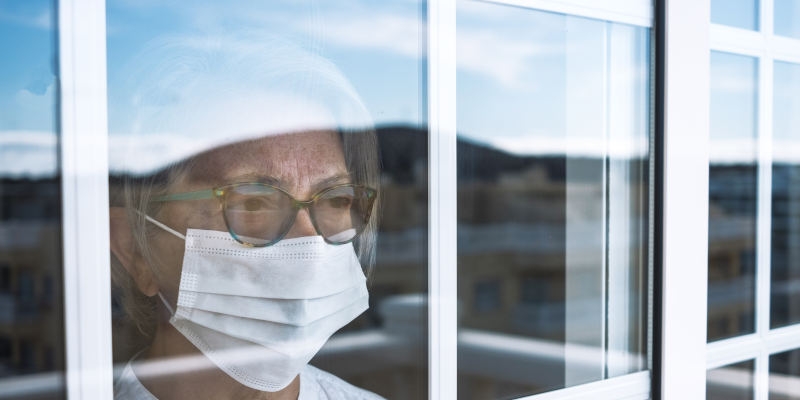A new study has revealed the lifestyle-related changes people with diabetes undertook during the UK’s first lockdown.
- Individuals with type 2 diabetes reported worse sleep quality and greater consumption of convenience and sugary foods than those with type 1 diabetes.
- However, people with type 2 diabetes also consumed more fresh food and drank less alcohol than the respondents with type 1.
- People with type 1 reported more weight gain, while those with type 2 said they had more frequent weight loss.
UK-based researchers sought to explore how the restrictions put in place by the government impacted an individual and their self-management of a chronic condition.
The measures disrupted individuals’ routines or habits, with earlier research highlighting a tendency to consume unhealthier foods and fall into a more sedentary lifestyle due to the restrictions in place.
5764 people aged over 18 from the Diabetes.co.uk Community responded to a web-based survey which asked the participants to answer questions related to their lifestyle-related behaviours during the first national lockdown.
Of the respondents, 62.7% had type 2 diabetes, 452.% had hypertension or high blood pressure, and 27.4% were living with type 1 diabetes.
To counter the spread of COVID-19, the first lockdown in England occurred between late march and June 2020, with restrictions imposed on physical and social distancing. Measures included the closure of all ‘non-essential’ high-street shops, while the population was told to stay at home, except for seeking medical treatment, purchasing food and partaking in exercise.
Exercise and going outside
People living with type 2 diabetes reported making less effort to get outside and exercise in comparison to those with type 1 diabetes. In total, just over a quarter of all survey participants said they made a conscious effort to get out and exercise daily during the lockdown.
The researchers believe the widely-reported COVID infection outcomes in individuals with diabetes may have prevented people with type 2 diabetes from exercising and going outdoors as much, despite the condition being classed as not ‘clinically extremely vulnerable’.
Diet
Almost 40% of those surveyed said they were experiencing more with cooking, with 33.1% also reporting to have eaten more food in general.
While those in the type 2 group said they had lost weight throughout the first lockdown, the type 1 group reported weight gain. Compared to the type 1 group, those with type 2 diabetes also reported consuming more fresh food.
However, those with type 2 diabetes ate more sugary than the group with type 1 and consumed more convenience foods when compared with the survey respondents with ‘other’ health conditions.
A higher proportion of the type 1 group may have managed their diets better as the condition is often diagnosed at an earlier age than type 2, allowing those with type 1 to form lifelong habits – such as exercising and eating healthily – that are positive for blood sugar regulation and overall diabetes management.
Sleep
There was no significant difference between the respondents when it came to sleep, with almost half reporting no changes in the amount of time they slept.
Those with type 2 diabetes said they had worse sleep quality in line with other research that explored COVID-19’s and lockdown’s negative impact on sleep quality.
- Read another paper based on the survey responses – Public Concerns Over the Security and Privacy of Health Data
While lockdown may have enabled positive lifestyle changes for some, others may have had a negative impact on their habits, nutritional status and diabetes management.
The study’s authors hope the research will inform further government and other policymakers on actions – such as a national lockdown or other restrictive events – that are likely to affect vulnerable groups.
Instead, implementing targeted proposed measures could mean groups such as those with type 1 and type 2 diabetes are taken into consideration when launching a national lockdown or similar initiative.
This study was originally published in BMJ Nutrition, Prevention & Health





